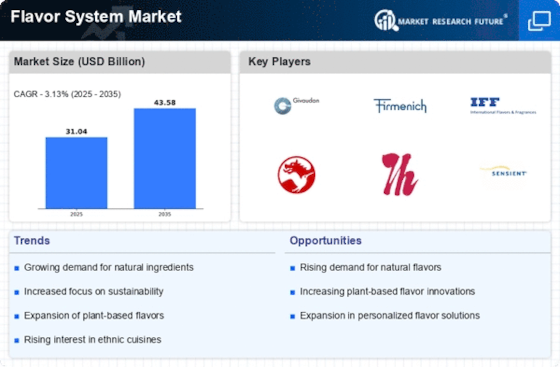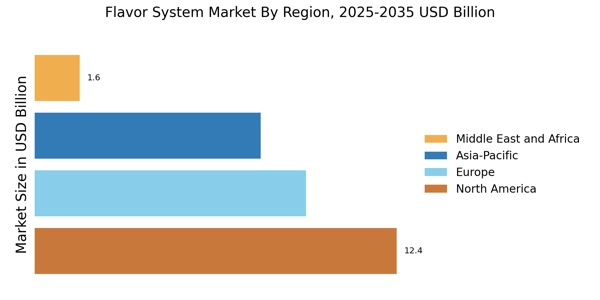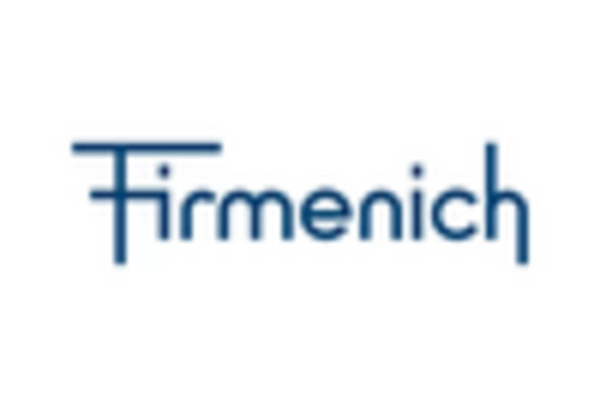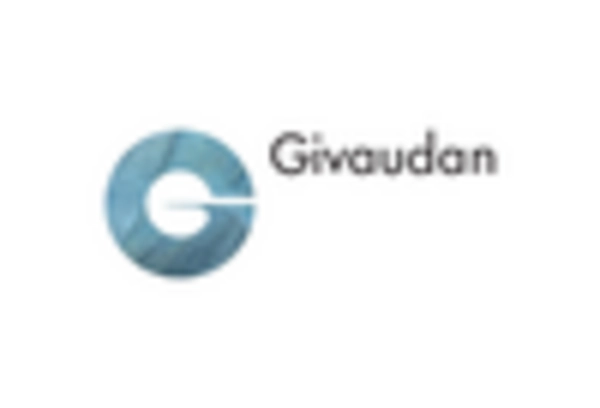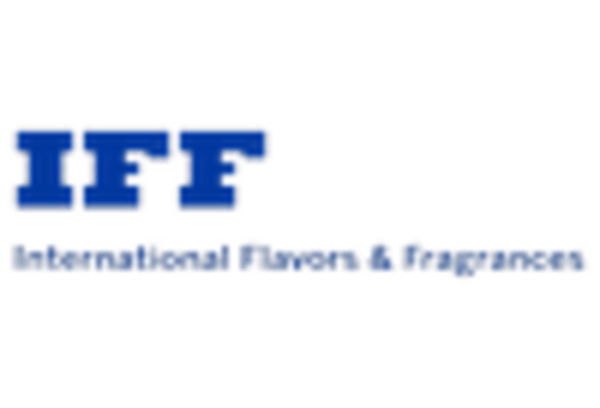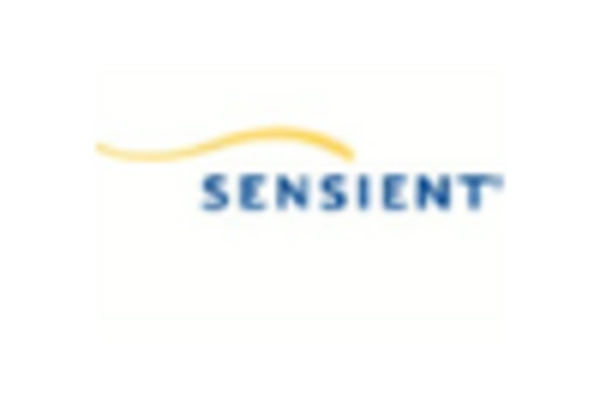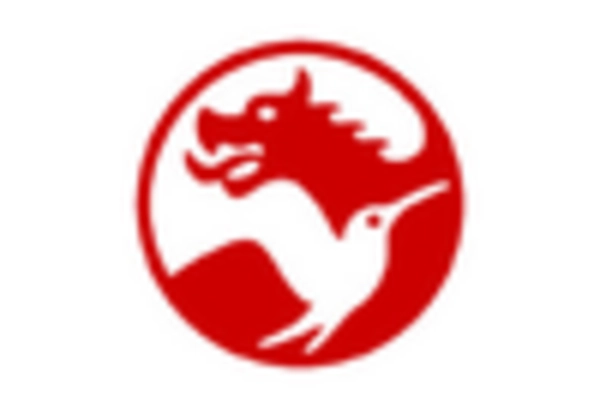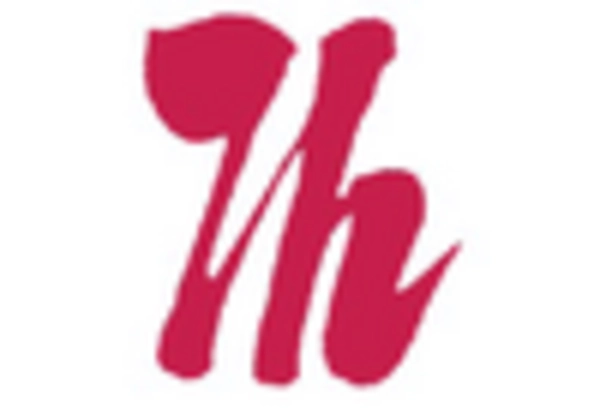Sustainable Sourcing Practices
Sustainability has emerged as a critical driver in the Flavor System Market, influencing sourcing practices across the sector. Companies are increasingly adopting sustainable sourcing methods to meet consumer expectations for environmentally friendly products. This shift is not merely a trend but a response to growing concerns about climate change and resource depletion. Data indicates that a significant percentage of consumers are willing to pay a premium for sustainably sourced flavors, which has prompted manufacturers to reevaluate their supply chains. By prioritizing sustainable practices, companies can enhance their brand image and appeal to a broader audience. Furthermore, the Flavor System Market is likely to see an increase in partnerships with local farmers and suppliers, fostering a more sustainable ecosystem that benefits both producers and consumers.
Health-Conscious Flavor Innovations
The Flavor System Market is witnessing a notable shift towards health-conscious flavor innovations. Consumers increasingly demand products that not only taste good but also align with their health and wellness goals. This trend is reflected in the rising popularity of natural and organic flavors, which are perceived as healthier alternatives to artificial options. According to recent data, the market for natural flavors is projected to grow at a compound annual growth rate of approximately 5.5% over the next few years. This growth is driven by the increasing awareness of the adverse effects of artificial additives on health. As a result, manufacturers in the Flavor System Market are investing in research and development to create innovative flavor profiles that cater to health-conscious consumers, thereby enhancing their product offerings and market competitiveness.
Rising Demand for Plant-Based Products
The Flavor System Market is experiencing a surge in demand for plant-based products, driven by changing consumer preferences and dietary trends. As more individuals adopt vegetarian and vegan lifestyles, the need for flavors that complement plant-based foods has intensified. This trend is supported by data indicating that the plant-based food market is expected to grow at a compound annual growth rate of over 10% in the coming years. Consequently, flavor manufacturers are focusing on developing innovative plant-based flavor solutions that enhance the taste of meat alternatives and dairy substitutes. This shift not only reflects a broader movement towards healthier eating but also presents opportunities for growth within the Flavor System Market, as companies strive to meet the needs of this expanding consumer segment.
Expansion of the Food and Beverage Sector
The Flavor System Market is significantly influenced by the expansion of the food and beverage sector. As the global population continues to grow, the demand for diverse and flavorful food products is on the rise. This expansion is particularly evident in emerging markets, where increasing disposable incomes are leading to greater consumption of processed and convenience foods. Market analysis indicates that the food and beverage industry is projected to grow at a steady rate, which in turn drives the demand for innovative flavor solutions. Manufacturers in the Flavor System Market are responding by diversifying their product offerings and enhancing flavor profiles to cater to the evolving tastes of consumers. This trend underscores the interconnectedness of the food and beverage sector with the Flavor System Market, highlighting the importance of flavor innovation in meeting consumer expectations.
Technological Advancements in Flavor Development
Technological advancements are playing a pivotal role in shaping the Flavor System Market. Innovations in extraction and formulation techniques are enabling manufacturers to create more complex and appealing flavor profiles. For instance, advancements in biotechnology and flavor encapsulation technologies are allowing for the development of flavors that are not only more intense but also longer-lasting. This is particularly relevant in the beverage sector, where flavor stability is crucial. Market data suggests that the adoption of these technologies could lead to a significant increase in product variety and customization options for consumers. As a result, companies that leverage these technological advancements are likely to gain a competitive edge in the Flavor System Market, catering to the evolving preferences of consumers.


